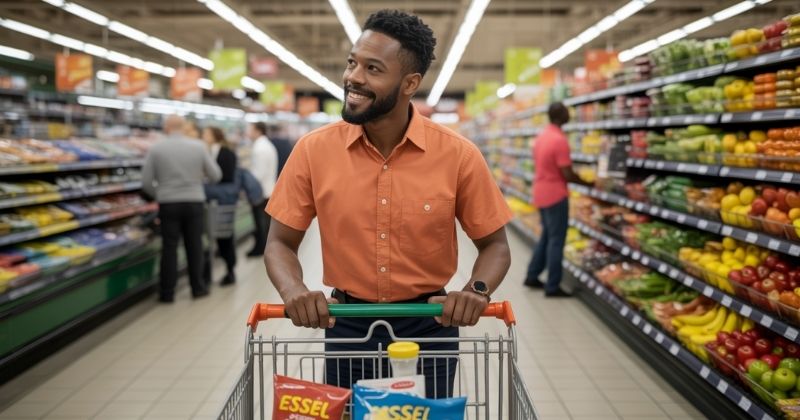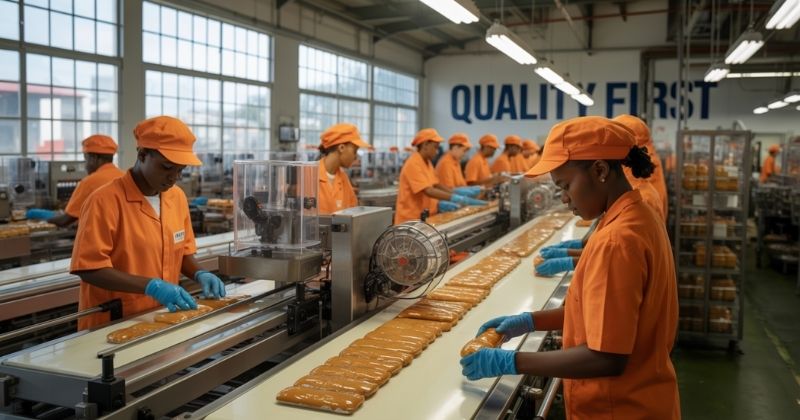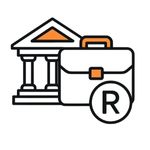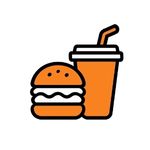
South Africa’s leading brands play a central role in the economy and in shaping consumer choices, with top performers spanning telecommunications, banking, retail, healthcare, mining, and consumer goods. The Top 100 Brands in South Africa showcase both financial strength and consumer trust, offering insight into how companies adapt to shifting expectations, economic pressures, and competition, while revealing which names remain the most influential in daily life.
Key Takeaways
- Telecom, banking and retail dominate brand value: The top ten brands hold over 40% of the total ranking’s value, with MTN, Vodacom and Standard Bank leading the list.
- Banking shows strong consumer trust: Five of the ten most valuable brands are banks, underlining the sector’s central role in the South African economy and the confidence consumers place in financial services.
- Retail growth signals improved consumer power: Brands like Checkers and Woolworths have recorded double-digit brand value increases, reflecting stronger domestic spending and brand reputation recovery.
About Arcadia Finance
Apply once with Arcadia Finance and receive tailored loan options from 19 reputable, NCR-registered lenders. No fees, just a smooth, secure process.
Valuation Analysis Of The Top Brands In South Africa
The combined brand value of the ten leading South African brands amounts to R295.2 billion. This figure accounts for more than 40% of the entire ranking’s value, showing the dominance of these companies in the national brand landscape.
Telecom Leaders
MTN, with a brand valuation of R50.7 billion, remains South Africa’s most valuable brand. It has held this position since Brand Finance first began evaluating South African companies in 2012. Despite ongoing pressures such as economic instability, inflation, and stringent regulations in Nigeria, MTN continues to lead. Nigeria, however, still plays a key role for the business, with a large subscriber base that sustains its revenue and influence.
Vodacom follows with a brand value of R43.9 billion, while Standard Bank secures third place with a value of R37.8 billion. Both companies maintain strong positions due to their extensive operations and customer reach across Africa.
Strength Of The Banking Sector
The banking industry demonstrates its strength by claiming five out of the top ten positions. Besides Standard Bank, the sector includes:
- First National Bank (R29.2 billion)
- Absa (R27.3 billion)
- Nedbank (R20.3 billion)
- Investec (R20.1 billion)
This strong showing underscores the critical role of banks in the South African economy and the trust consumers place in these institutions.
Growth In Retail Brands
Retailers have also risen to prominence in the rankings. Checkers achieved a 23% increase in brand value to R23.5 billion, while Woolworths recorded a 17% rise to R22.2 billion. Shoprite, valued at R20.1 billion, also appears among the top brands. The improved performance of Checkers and Woolworths highlights strengthened brand reputation and higher revenues, pointing to a revival in domestic retail as consumer confidence and spending gradually recover.
The concentration of telecom, banking, and retail brands at the top of the valuation list reflects their vital importance to South African consumers. Their ability to grow despite competitive markets indicates that South African brands hold their own globally, supported by the high standards of service and product quality that they continue to deliver.

Sector Spotlights

Telecommunications and Connectivity
Telecommunication brands are essential to South Africans but often face negative customer sentiment. Poor service quality, unresolved complaints and high data costs are major concerns, with one study showing 27.7 per cent of conversations linked to complaints and a Net Sentiment score of –87.7 per cent. Coverage gaps and weak support remain frustrations. New tools such as AI-driven customer support, network optimisation and fraud detection are expected to improve efficiency and consumer experience in future.

Banking and Financial Services
South Africa’s banks are known for stability and expanding digital access. With over 90 per cent of adults owning mobile phones, mobile banking usage is rising quickly. Leading banks like FNB and Standard Bank provide secure apps with features such as biometric login and AI-powered chatbots. Strong regulatory compliance combined with reliable digital systems helps sustain consumer trust and loyalty.

Retail and Consumer Goods
Retail and consumer goods companies perform strongly, driven by value, accessibility and loyalty schemes. Eighty-two per cent of South Africans are enrolled in loyalty programmes, up from 76 per cent in 2023. Popular offerings include FNB’s eBucks and Checkers’ Xtra Savings, which give cashback and personalised rewards. Many retailers are also introducing real-world engagement opportunities that appeal to younger consumers.

Healthcare and Insurance
Healthcare and insurance brands balance medical services with financial protection. Private healthcare remains expensive and often requires upfront payment, while insurance helps consumers access private hospitals. New models such as Unjani Clinics use social franchising to provide affordable care in underserved areas. The proposed National Health Insurance (NHI) scheme aims to expand access, though concerns remain around costs, capacity and delayed reimbursements.

Energy, Mining, and Industry
This sector is central to the economy, contributing nearly 9 per cent of GDP, but faces problems such as load-shedding and infrastructure decline. Companies like Gold Fields have delivered strong profits through high gold prices, while Exxaro is diversifying into critical minerals including manganese. Despite challenges, resource-linked brands remain vital for jobs, exports and shareholder returns.

Food and Beverage
Food and beverage brands include trusted names and newer competitors. Tiger Brands, active since 1921, continues to anchor household staples while investing in sustainability and innovation. Global giants like Coca-Cola and PepsiCo compete alongside local challengers such as Switch and Dragon, which attract buyers with affordable options and bold marketing. These companies remain resilient by adapting to changing consumer preferences.

The Top 100 Brands in South Africa in 2025
| Rank | Name |
|---|---|
| 1 | MTN |
| 2 | Vodacom |
| 3 | Standard Bank |
| 4 | First National Bank |
| 5 | Absa |
| 6 | Checkers |
| 7 | Woolworths SA |
| 8 | Nedbank |
| 9 | Investec |
| 10 | Shoprite |
| 11 | MultiChoice |
| 12 | Bidfood Group |
| 13 | Spar |
| 14 | Capitec Bank |
| 15 | Bidvest |
| 16 | Mondi |
| 17 | Castle |
| 18 | Sasol |
| 19 | Discovery |
| 20 | Carling Black Label |
| 21 | Old Mutual |
| 22 | Sanlam |
| 23 | Mediclinic |
| 24 | Sappi |
| 25 | Pick n Pay |
| 26 | Mr Price |
| 27 | Rand Merchant Bank |
| 28 | Clicks |
| 29 | Truworths |
| 30 | Anglo American Platinum |
| 31 | Liberty |
| 32 | Peter Stuyvesant |
| 33 | Life Healthcare |
| 34 | Sibanye Stillwater |
| 35 | Engen |
| 36 | AngloGold Ashanti |
| 37 | Momentum |
| 38 | Gold Fields |
| 39 | Netcare |
| 40 | Implats |
| 41 | Santam |
| 42 | Hansa Pilsner |
| 43 | Aspen Group |
| 44 | PEP |
| 45 | Kumba Iron Ore |
| 46 | TymeBank |
| 47 | Dis-Chem |
| 48 | Telkom |
| 49 | Boxer |
| 50 | Springboks Rugby |
| 51 | OUTsurance |
| 52 | Vitality |
| 53 | MOTUS |
| 54 | Sportscene |
| 55 | Northam Platinum |
| 56 | Barloworld |
| 57 | African Bank |
| 58 | Markham |
| 59 | Albany Bakeries |
| 60 | Ricoffy |
| 61 | Harmony |
| 62 | Italtile |
| 63 | Foschini |
| 64 | AECI |
| 65 | Usave |
| 66 | Lucky Star |
| 67 | Wesbank |
| 68 | BCX |
| 69 | Hollard |
| 70 | Cell C |
| 71 | game |
| 72 | Logicalis |
| 73 | Jungle |
| 74 | Identity |
| 75 | Growthpoint Properties |
| 76 | Studio 88 |
| 77 | Exxaro |
| 78 | Koo |
| 79 | Total Sports |
| 80 | GuardRisk |
| 81 | Tastic |
| 82 | PPC |
| 83 | Tiger Brands |
| 84 | Builders Warehouse |
| 85 | Lewis |
| 86 | PSG Financial Services |
| 87 | Blue Label Telecom |
| 88 | Media24 Group |
| 89 | makro |
| 90 | OK Furniture |
| 91 | Coronation |
| 92 | Safripol |
| 93 | Nampak |
| 94 | Metropolitan |
| 95 | Unitrans |
| 96 | Purity |
| 97 | All Gold |
| 98 | African Rainbow Minerals |
| 99 | Mustek |
| 100 | Shield |
Challenges Facing Top Brands in South Africa
Power Instability
One of the most pressing challenges is load-shedding, which continues to affect almost every sector. Retail outlets, manufacturers, and logistics operators often experience disrupted operations, leading to lost revenue and frustrated consumers. Unreliable electricity supply also increases operating costs as businesses invest in backup systems to maintain continuity.
Supply Chain Disruptions
Poor infrastructure and congestion in road and rail transport create delays and inefficiencies in moving goods across the country. For many brands, this raises costs and reduces their ability to keep shelves stocked or deliver services on time. The limited capacity of freight rail has been particularly damaging for mining and industrial companies that rely heavily on bulk transport.
International Trade Pressures
South African exporters are increasingly exposed to changes in global trade policies. The recent 30 per cent tariff imposed by the United States on certain goods, including wine, is a clear example. Such measures threaten the competitiveness of local producers, reduce export revenues, and put jobs at risk in agriculture, food processing, and manufacturing.
Sector-Specific Struggles
Individual industries face their own hurdles. In media, MultiChoice has struggled with falling subscriber numbers and shrinking revenues as global streaming services capture market share. Rising operational costs have further reduced profitability, showing how even long-established brands are vulnerable to shifting consumer preferences and global competition.
Economic Pressures
The broader economic environment adds further strain. South Africa continues to battle slow growth, high unemployment, and persistent inflation, all of which limit consumer spending power. At the same time, fragile investor confidence reduces the flow of capital into expansion projects. These pressures make it difficult for even the most valuable brands to sustain strong growth.

Picking The Right Brand For Your Needs
Align Your Brand Choice With Your Goal
When selecting a brand, the decision often depends on what you hope to achieve. Shoppers focused on everyday affordability tend to favour brands that provide consistent value and straightforward functionality. Those who are more interested in premium features usually look towards companies offering higher quality craftsmanship or exclusive enhancements.
A brand with a nationwide footprint may be the right option if access to multiple outlets and widespread support is a priority, while a specialist provider can be more suitable when a niche or tailored solution is required.
Consumers also need to weigh the difference between online-only brands, which may offer lower prices or unique items, and omnichannel options, where goods can be purchased both digitally and in-store with the added benefit of in-person service.
Checkpoints Before You Buy
- Review the returns, exchange policies and warranty conditions closely to avoid surprises if something goes wrong.
- Take note of delivery charges and expected timelines, especially for remote or provincial areas.
- Factor in finance options and the total cost of ownership, including interest, maintenance and any hidden fees.
- Be alert to warning signs such as absent warranty details, overly vague or inconsistent retailer reviews, pressure tactics like “limited stock” claims, or unclear after‑sales support offerings.
Conclusion
The Top 100 Brands in South Africa demonstrate the resilience and influence of the country’s strongest companies across telecommunications, banking, retail, healthcare, mining, and consumer goods. These brands not only carry substantial financial value but also represent consumer confidence and loyalty. Even in the face of economic pressures and heightened competition, they continue to evolve by investing in innovation, expanding their reach, and adapting to consumer needs. For South Africans, this ranking provides a valuable benchmark when deciding which brands offer genuine reliability, value, and quality in their everyday lives.
Frequently Asked Questions
MTN is the leading brand, holding a brand value of R50.7 billion. It has consistently maintained this position, reflecting both its strong market presence across Africa and the scale of its subscriber base, despite economic and regulatory challenges in key markets such as Nigeria.
The top ten brands together account for more than 40% of the total brand value in the rankings. This highlights their collective dominance in the South African market and shows how concentrated brand strength is among a relatively small group of leading companies.
Banks occupy five of the top ten spots because they combine financial stability, strong regulation, and expanding digital services. With the rise of mobile banking and accessible apps, they are able to reach a broad base of customers while maintaining the trust that is essential in financial services.
Retailers such as Checkers, Woolworths, and Shoprite have shown significant gains. Checkers increased its brand value by 23% and Woolworths by 17%, driven by stronger consumer spending, enhanced brand reputation, and the growing appeal of loyalty schemes that encourage repeat purchases.
Consumers can use the rankings as a guide to identify which brands consistently deliver quality, value for money, and reliable customer service. Whether choosing a telecom provider, a supermarket, or a financial institution, the list provides a clear indication of which companies are performing well and are likely to offer a dependable experience.
Fast, uncomplicated, and trustworthy loan comparisons
At Arcadia Finance, you can compare loan offers from multiple lenders with no obligation and free of charge. Get a clear overview of your options and choose the best deal for you.
Fill out our form today to easily compare interest rates from 19 banks and find the right loan for you.

